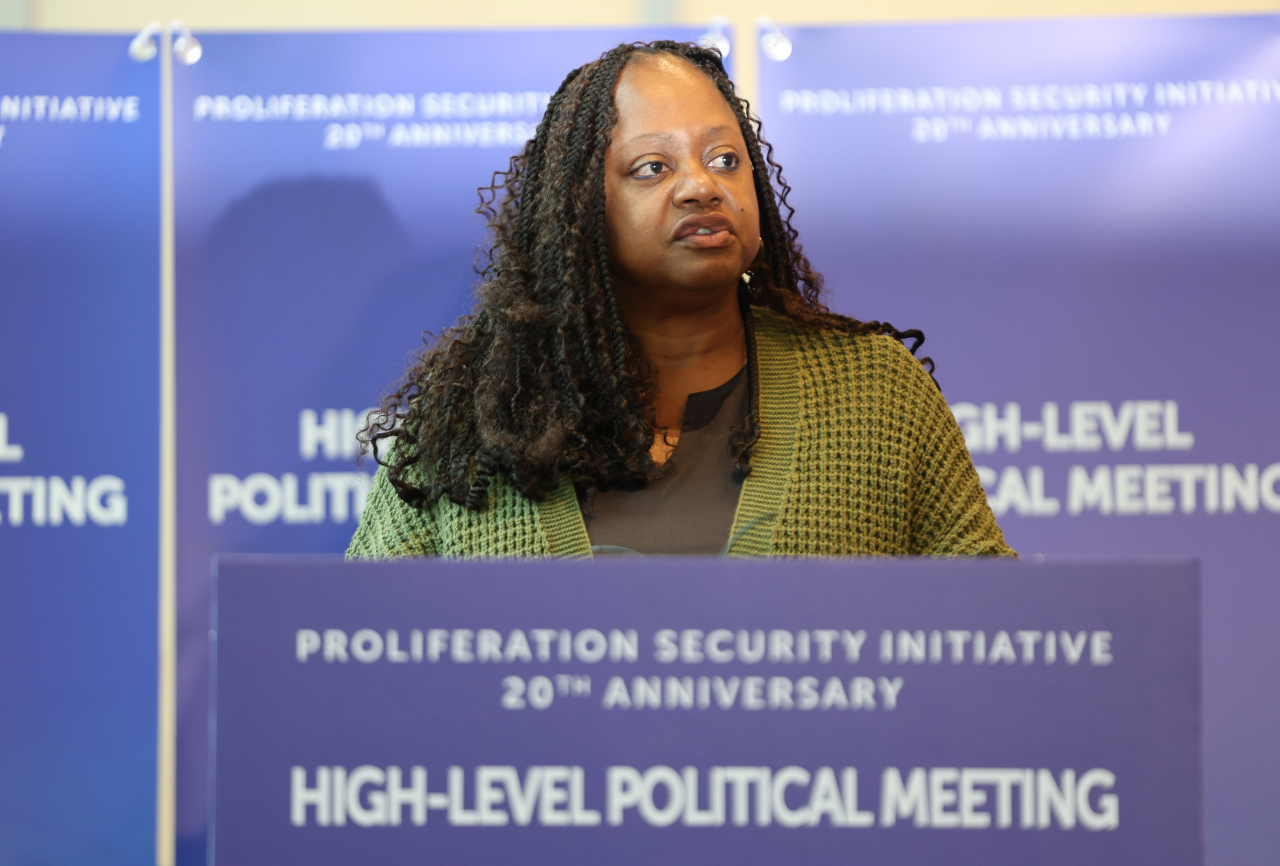
SEOGWIPO, South Korea -- A group of countries endorsing the Proliferation Security Initiative (PSI) on Tuesday reaffirmed their commitment to interdict the illicit transfer of weapons of mass destruction (WMD) and related materials.
The agreement was reached at a high-level forum on the 20th anniversary of the PSI on South Korea's southern resort island of Jeju with delegates from 70 PSI-endorsing and observer countries, including the United States, Japan and Australia, joining the event.
In a joint statement, the participating countries agreed to further commit to improving PSI capacity-building activities and training, as well as addressing the challenges posed by the emerging technologies and proliferation practices amid the "changing security environment."
The new areas of concern include proliferation finance involving cryptocurrency, intangible technology transfers and the increasing sophistication of proliferators' tactics to circumvent international law, they added.
The PSI members also noted that emerging technologies, such as 3D printing, artificial intelligence and quantum computing, can create additional nonproliferation and counter-proliferation challenges.
Stressing the need for "increased cooperation" in countering evolving threats posed by the development of nuclear and ballistic missile programs, the delegates decided to work on an "action plan" for the implementation of the joint statement.
At a press conference following the forum, Bonnie Jenkins, undersecretary of state for arms control and international security at the State Department, said the PSI does not target any particular nation but added that North Korea came up the most "in terms of challenges to the current environment."
"Obviously North Korea came up many times because if you're looking at challenges in a non-proliferation space and you're looking at the challenges that exist in this region ... it's hard not to talk about North Korea," she said.
When asked about the North's recent plans to launch its first military spy satellite, she said such security challenges highlight the importance of the PSI and other multilateral efforts.
On China, Jenkins said the PSI was willing to discuss Beijing's engagement in the initiative if it shows interest.
"We want to reach out to more countries in the Indo Pacific and Africa, and in other parts of the world," she said. "If China wanted to be a part of this, this is something that we could talk about." (Yonhap)





